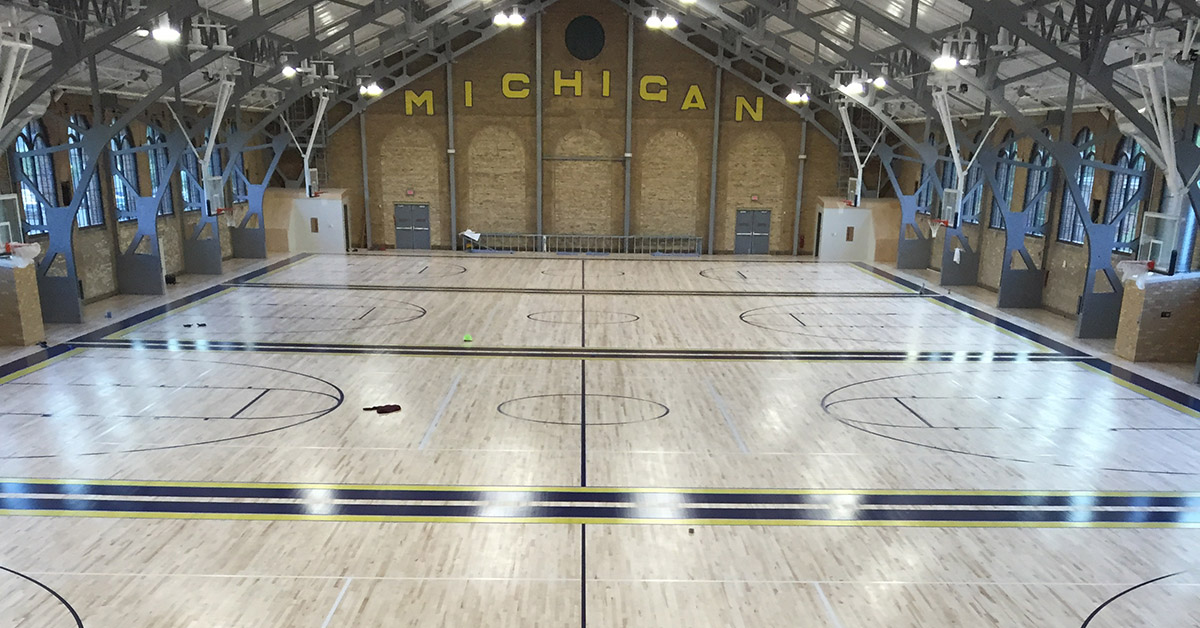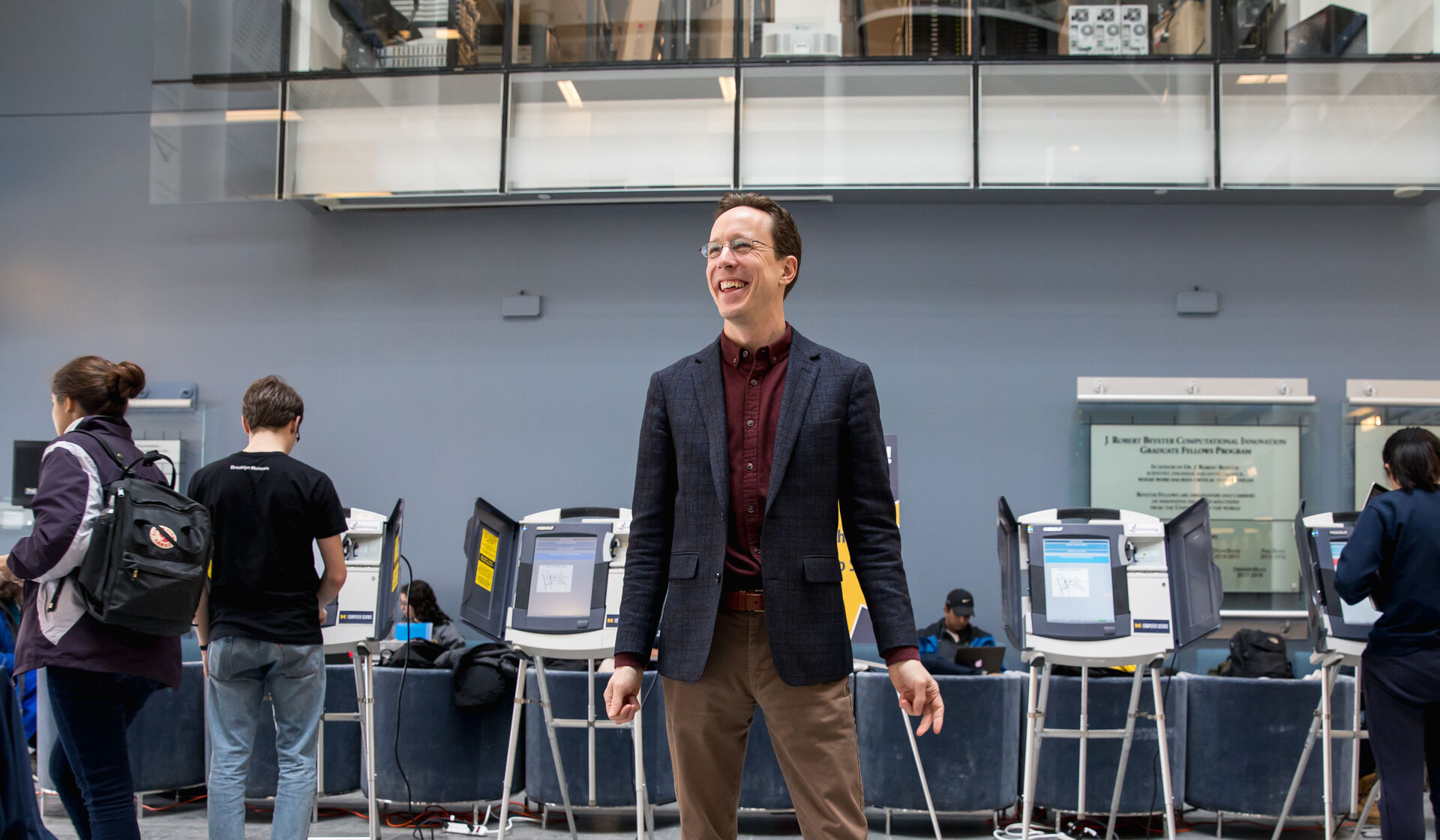“I used to call it ‘The Castle,’” says senior Lindsey Tartaglia, while leading a tour of U-M’s newly renovated Intramural Sports Building (IMSB), just two days before its Sept. 28 reopening. “The old building had no elevators, only staircases leading all over the place,” she recalls, pressing a button that soon zips her up to a third-floor training room. Speaking from her office, Jessica Kraft, ’12, JD’15, also remembers of the labyrinth, “If you walked in as a freshman, you had no idea where to go.”
Thanks to Kraft, IMSB student coordinator Tartaglia and her peers can now enjoy the $21.4 million worth of updates spent on the 100,000-square-foot building following an extensive 15-month renovation. The IMSB is open to all students for drop-in activities, general exercise, and relaxation. But those participating in recreational club sports use it most frequently, as Kraft once did as a freshman playing Michigan Club Softball. (There are currently 31 clubs on campus, ranging from tennis to tae kwon do.)
That same year, Kraft joined the newly formed Club Sports Council, comprising representatives from each sport to enhance cooperation. She went on to serve as president of the council during her last three undergraduate years, but also joined the Advisory Committee to Recreational Sports, where students, faculty, staff, and retirees provide feedback and guidance to the programs. It was in these two roles, and later working with Building a Better Michigan (a student advisory group that weighs in on future development of the University’s unions and recreation centers) that she began her crusade to improve the building.
“It felt like an old university gym, not a place for lifetime fitness,” Kraft recalls of the building, which dates back to 1928 and was the first university intramural sports facility in the country. “You always had to wait for a treadmill, and it was really dark and hot. But it also did not feel welcoming.”
In February 2015, the board of regents agreed with Kraft and others supporting the campaign. They approved a plan that funds the project through a $65 per-term student fee designated to support upgrades to campus unions and recreation facilities. Though Kraft has not yet seen the upgrades, she will certainly be happy with three of the changes: more than 200 pieces of new cardio and strength-training equipment should mean no more waiting for treadmills, new windows and lighting have brightened the interior, and a comprehensive air-conditioned system now keeps the climate cool.
Gone, however, is the indoor pool. Though some historic tile work has been left for nostalgia, the pool was replaced by an area for cardio fitness, stretching, and other functional fitness activities. Also lost are the squash courts, though a spiral staircase that led to one has been preserved. Instead, there are now three new racquetball courts, which can also accommodate wallyball, a games lounge, and variety of spaces set aside for relaxation and lounging, complete with large-screen televisions. What’s more, it is now 100 percent ADA (Americans with Disabilities Act) accessible.
“This is now an open and inclusive space,” says David Siegle, senior assistant director of recreational sports and the building’s facilities manager. “It is a blank slate. You can come here and get as sweaty as you want exercising, or you can just sit in the lounge and relax.” (The building also includes two gender-neutral bathrooms.)
“I can’t wait to see it,” says Kraft, who is currently clerking for Michigan Supreme Court Justice Joan Larsen, formerly one of her U-M law professors. “It now sounds like a place for overall wellness.”
Tartaglia is excited about the new women’s locker room. The previous one was old and tucked away in the bowels of the building, added on in the 1970s when Title IX was passed and women began using the facilities more regularly. “Look at this beautiful Italian tile,” she says. “Everyone is going to love the changes.”
To learn more about alumni eligibility and rates for annual, monthly, or one-day memberships, visit recsports.umich.edu.
Jennifer Conlin, ’83, is deputy editor at the Alumni Association.





